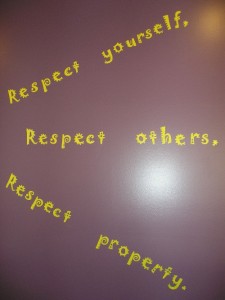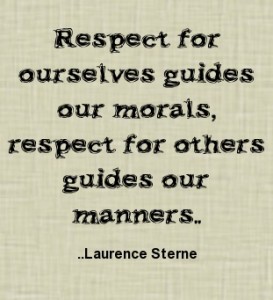The expectation we have for others to show respect for items that matter to us is the same that others have for us. When we are invited to another persons home how do you show respect for the things that matter to them?
It may begin with our entry into the home. Does the family take their shoes off at the door, then we should follow suit. We may even ask if this is the custom. Once we are inside do we wait to be invited into various parts of the house. If the children are asked to go upstairs into the bedrooms – do you make sure that permission is asked of the parents of the house.
When visiting others in their home, being careful with their belongings – furniture, dishes, toys, all show that the things that matter to others also matters to us. That is respect – the behavior of valuing others and their property.
Respect can be shown to others with our manners too. We will want to show appreciation with our words and actions for the hospitality shown to us. Saying thank you for food and other provisions along with appreciation for the invitation to spend the time with them. Yes, even their time is a valuable commodity that we show respect for. When the agreed time limit for the visit is met – then without complaining we will make our way back to our own home – without complaining or begging for more time to be spent.
As I prepared this post I was thinking how well this tied into the practice of empathy. Asking ourselves how the other person feels and even then taking our level of respect up a notch or two. Remember empathy is not just treating others the way we would want to be treated. It really is treating others the way they would like to be treated and that includes their personal property.





